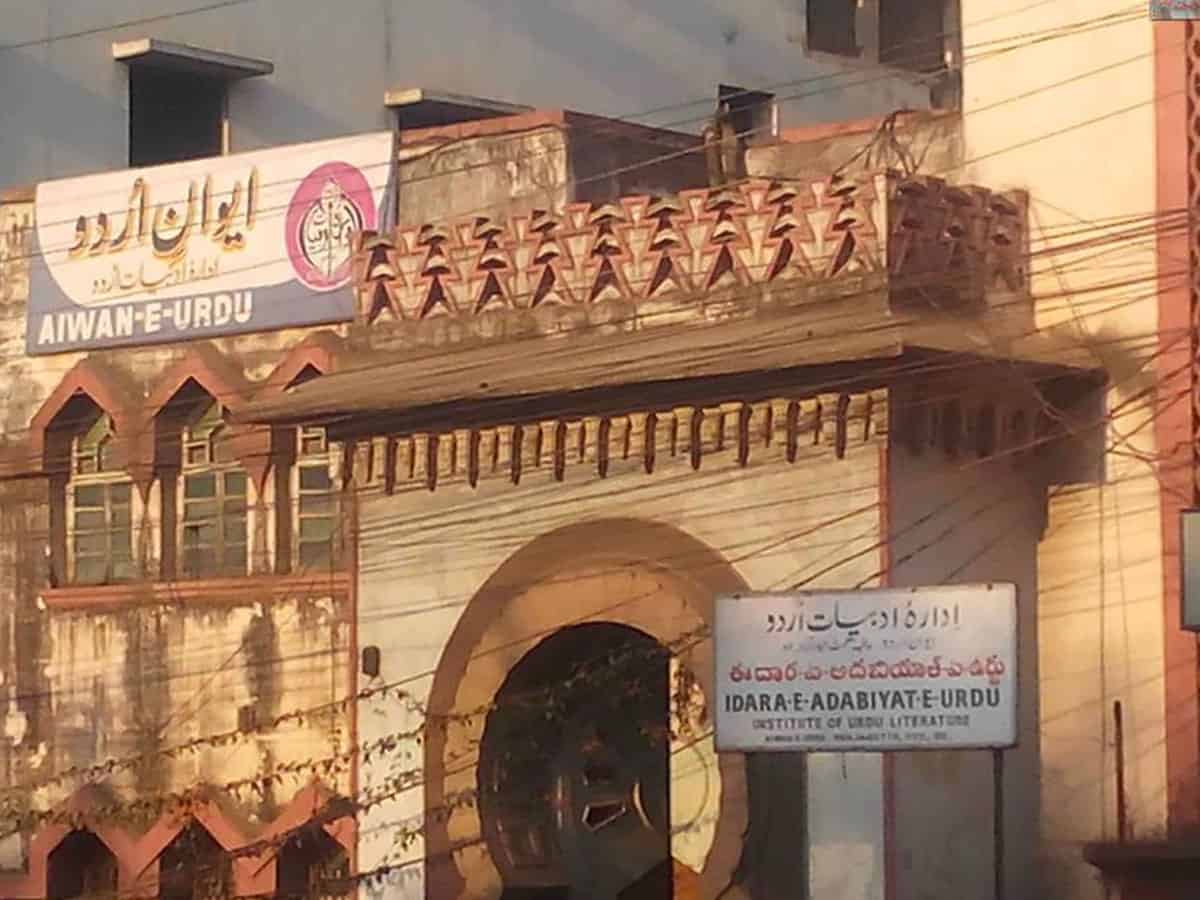
Hyderabad: The Idara-e-Adabiyat-e-Urdu has always been the favourite haunt of students and research scholars. Not just from Hyderabad, academics from across India would land here to pore over rare books. Foreign nationals also dropped in here from time to time to quench their literary thirst. But not anymore. In the last couple of years their number has come down sharply and in recent months few have turned up. No, there is nothing wrong with Idara. It still has the same old books. Only they are now available online.
Thanks to Rekhta, the Urdu literary web portal, rare books and manuscripts of the Idara are getting digitized and one can access them from the comfort of one’s home. A whopping 22,000 books are now available online.
Situated on the bustling Punjagutta road, the Idara is a sanctuary of knowledge and history. For decades it has drawn bookworms from the four corners of India and beyond. From the serene lands of Japan to the vibrant cities of Canada, from the ancient sands of Egypt to the modern marvels of Dubai, and even the lush landscapes of Bangladesh, they all found their way to this cherished institution.
Established by Dr. Syed Mohiuddin Qadri Zore in 1931, the Idara seeks to promote the study of Deccan history and works for conservation of the country’s historical and literary documents. Among the dignitaries who visited the Idara were former Presidents Dr. Rajendra Prasad, Dr. Zakir Hussain, Faqruddin Ali Ahmed, Sanjeeva Reddy and former Prime Minister of Hyderabad, Sir Akbar Hydari. What attracts students to this institute is the literary wealth contained in the 50,000 odd books and 2600 rare manuscripts in Persian, Arabic, Urdu and Gurmukhi languages housed here. Though bereft of funds and manpower, the Idara is doing its best to preserve its unique collection.
The tie-up with the Rekhta Foundation is the best thing that has happened to the Idara. During the last four years over 22,000 rare books and journals have been digitized. “Now people can access them from anywhere,” says Prof S.A. Shukoor, Idara Secretary.
The dusty shelves of the Idara are home to such rare books as Tarjuma Tuzike Jahangir. This apart there are many rare books on philosophy, history, and literature mostly in Urdu, Persian, and Arabic. The Idara also boasts of a good number of ancient manuscripts, the earliest one being the Arabic manuscript titled ‘Sharhu Miftahul Uloom’ compiled by Ali Bin Muhammed in 803/1400. It also has a good collection of Deccani miniature paintings, firmans, monograms, calligraphy panels, arms and armour, textile, Bidriware, wall hangings, coins and two boxes of Ganjifa, the ancient Indian card game that originated in Iran.
Now, the once bustling Idara presents a quieter scene, the footsteps of eager scholars echoing less frequently against the worn stone floors. It is not a decline of interest in the treasures held within the Idara, but rather a shift in the winds of knowledge. Enter Rekhta, students and scholars have now found a new path to the treasures they seek.
With meticulous care and unwavering dedication, Rekhta has embarked on the monumental task to digitize all 35,000 rare books and manuscripts of the Idara. Its operators digitize three to six books every day. Slowly but surely, the ancient tomes are finding new life in the digital realm, their pages now accessible with a mere click from the comfort of one’s own home.
The lure of the Idara has now transcended its physical confines, weaving its spell across continents and generations.
